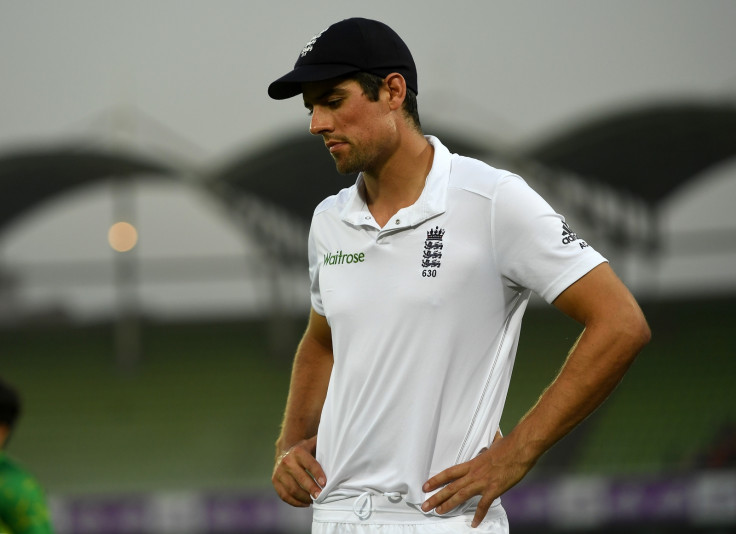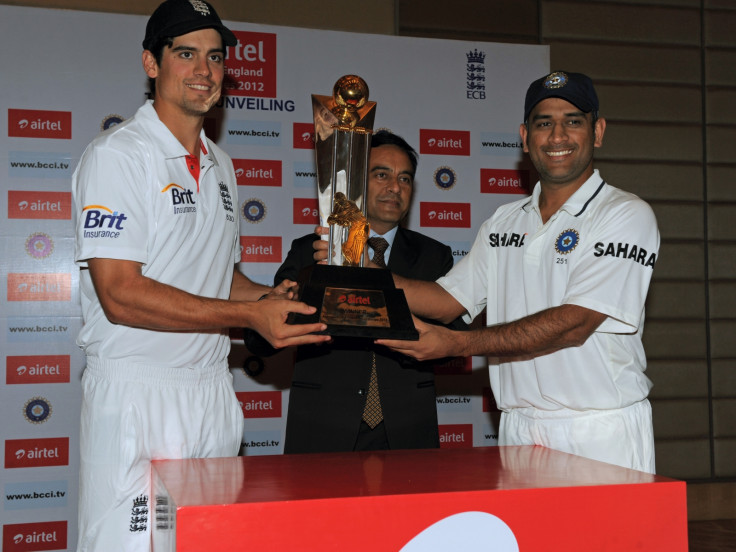Alastair Cook stands down as captain to bring England career full circle
Can one of the country's most successful skippers now bat with freedom at the top of the order?
Alastair Cook's record-breaking stint as England captain began and ended in the dustbowls of India. Following Andrew Strauss' decision to step down from the job at the end of the summer of 2012, Cook was handed one of the most daunting tasks in cricket: a tour of India, complete with its alien spinning wickets and culinary adventures.
From the very beginning he set out his stall as a batsman first and a captain second. He led through example, scoring a nine-hour 176 in the first Test, another ton in the second and yet another three figure score in the third. On the back of his runs, the return of Kevin Pietersen and the success of the tourists' spinners on the sub-continent, England won their first series in India for 28 years.
Four years later he had a very different experience. By now Cook was a family man and his preparations and involvement in the tour were complicated by a short trip home mid-tour for the birth of his second daughter. England suffered their first ever defeat to Bangladesh before the Indian leg of the tour and, despite another century from the skipper in the opening Test, the series went swiftly downhill from there.
The cricketing cycle over the period of Cook's tenure has seen India mature, with Virat Kohli and Ravi Ashwin growing into two of the best players in the world, while England have seen stars depart and are in the early stages of regeneration. Cook's decision to stand down is a tacit acknowledgement of this, as well as the personal realisation that the time has come to pass the burden/honour (delete as applicable) on.

That Cook was not a natural leader did not seem to bother him in the slightest. As an up-and-coming youngster being groomed for greatness he was given a copy of Mike Brearley's The Art of Captaincy. He later admitted that he never read it. Brearley was a throwback to a bygone age when the captain was chosen alongside the 10 best players in the country. The modern-day select process now requires skippers to pull their weight.
Cook saw his job to score runs and let others fulfil their roles. Indeed, the cynical would suggest that he assumed the captaincy due to cricket's preference for batsmen as leaders. He arguably stumbled upon the role as the next cab on the rank, when others may have offered something different. Graeme Swann, Stuart Broad and James Anderson might all have made interesting choices as leader. Now that Cook is going the likelihood is that again the team's best batsman, this time Joe Root, will assume the mantle.

There must have been times when Cook was sorely tempted to stand down in 2014, the hardest year of his tenure. Coming off the back of 13 consecutive Test victories, England were whitewashed by Australia for the second time this century, the spectacular fallout of which featured the sacking of the mercurial Kevin Pietersen.

The series was followed by woeful home defeats to Sri Lanka and India, before Cook was axed from England's one-day team shortly before the 50-over World Cup. While the Essex man was furious to be dropped from the limited overs set up, it probably lengthened his Test captaincy and reinvigorated his long-form batting. Throughout the period, Cook swallowed KP's plentiful supply of bitterness and fury in a dignified fashion.
His decision to stand down now is entirely reasonable and not entirely unexpected. Modern cricket packs more international cricket into the calendar than ever before – Cook has played for his country more times than anyone else ever. More games, more travel. Cook has taken on a heavy workload, skippering England 59 times – twice as a stand-in for his predecessor Strauss on a short tour of Bangladesh in 2010 – and then full time from his opening partner's abdication in August 2012.
The departure of Cook will however not rob his successor of a prolific opening batsman. He is still only 32 and despite the trials and tribulations of leading his country, his batting has continued to thrive. Indeed his test average is virtually identical whether he is leading or not: 4,844 runs at an average of 46.57 in 59 Tests as captain; 6,213 runs at 46.36 in 81 games without. But for now, let's marvel at his brilliance and wish his future opponents, including Australia next winter, the best of luck.
© Copyright IBTimes 2024. All rights reserved.






